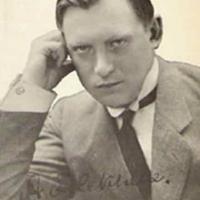
The Young Alekhine
Every once in a while, someone asks me the question “who is your favorite player?” That’s always a difficult question to answer, because I don’t really have a single favorite player. If I have to name one, though, I would probably say Alexander Alekhine, the fourth world champion. Alekhine can be credited as the founder of the dynamic school of chess.
Particularly interesting for me are his games from before he became world champion. During the times before World War I, he was more of a pure tactician. In addition, living in Russia before chess was so hugely popular, many of his opponents were much weaker, and this resulted in some pretty and crushing games. Games such as the following:
The main game for this article was actually a consultation game, played during the Moscow 1910 tournament. Alekhine’s partner was another famous player of the day, Ossip Bernstein. His opponent was the famous player Akiba Rubinstein, then at the height of his strength, partnered with the lesser-known player, Alexei Goncharov.
The “consultation game” is a phenomenon which seems to have been fairly popular in the past, although it is practically non-existent nowadays. I am not quite sure if it was an organized exhibition, or perhaps even an off-hand game, casually organized on a rest day. Such things did actually take place in the past – nowadays it would be hard to imagine.
I also am not quite sure how these consultation games were held. Since the “teams” discussed their moves with each other, did they sit in different rooms? I once attended an exhibition of this type, held in a tournament in Virginia Beach. It was a game between Nick DeFirmian and John Fedorowicz, and I even covered it for Chess Life. The players played in different rooms, each before an audience; they discussed their moves and the reasoning behind them with the audience. Something similar was also done in an exhibition tournament held in England, about which a book was written, The Master Game. I am not quite sure why this kind of exhibition is not more popular.
In any case, in this consultation game the players discussed their moves not with an audience, but with each other. The black team, with Rubinstein and Goncharov, was undoubtedly dominated by Rubinstein, since he was one of the top players in the world, while Goncharov was a comparative unknown. But in the case of the white team, Alekhine and Bernstein, it is hard to say. Although historically Alekhine is a much larger figure, Bernstein was more internationally famous at the time, while Alekhine was essentially a local youth (he was eighteen at the time). Nevertheless, I am sure Bernstein could sense Alekhine’s latent talent. In any case, the game was a tactical slugfest and you could clearly see the influence of Alekhine’s wild style.
Early in the game, the Rubinstein team conceded a positional advantage to the Alekhine team, when they refused to call Alekhine’s bluff. Seeking counterplay, Rubinstein invaded deep into Alekhine’s camp, first with his queen, and then with his knights. Soon, like Napoleon’s armies fighting in Russia, they found their escape routes cut off. A fierce tactical fight commenced, with the outnumbered black queen and knights desperately trying to create threats. Alekhine expertly dodged multiple pretty tactics, finally picking up a pinned bishop, and emerged the victor. Now let’s see the game.
Quite an unusual sort of game, where Black was compelled, by his positional disadvantage, to attack. White meanwhile welcomed the invasion, eventually pinning and winning one of the pieces. The desperate attack by the black knights, hopping around and creating chaos, was beaten back with accuracy by the Alekhine side. This was particularly unusual, since in some ways chess is a game alot like soccer (football) - the initiative is very valuable, and fighting the battle near the opponent's goal is a huge advantage. Not this time though.

